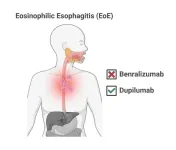C. diff is a common and potentially dangerous gastrointestinal pathogen, often linked to healthcare-associated infections and the overuse of antibiotics. While early diagnosis can be helpful in ensuring that patients receive the right treatment, inappropriate testing may identify patients who are harmlessly colonized with the bacteria rather than suffering from an acute infection. Guidelines from infectious disease organizations recommend targeted testing for patients demonstrating clear symptoms associated with C. diff, rather than broader testing for all patients with gastrointestinal symptoms, to avoid unnecessary treatment.
In this study, clinicians from Memorial Healthcare System developed and implemented new guidelines to help reduce inappropriate testing for C. diff, and monitored results across the patient population for nine months to evaluate the approach. Those results were compared to testing performed in the year preceding the new ordering guidelines. The study reports results from 224 adult patients, 118 tested based on the new method and 106 from before the guidelines were implemented.
The new ordering approach involved two sets of rules: one for patients admitted within the last 72 hours, for whom C. diff testing could be ordered without restriction for any patient who recently had at least three loose or unformed stools, and the other for patients who had been in the hospital for four days or more. For the latter group, C. diff testing could not be ordered for patients who had been given laxatives within 48 hours, who had been treated for C. diff 14 to 24 days prior, or who had tested positive for C. diff within 14 days. Patients who had been tested for C. diff in the past four days, even if they received a negative result, were also not eligible for a new test. For high-risk patients, such as those who were immunocompromised or had recently undergone gastrointestinal surgery, C. diff tests could be given even if other eligibility guidelines were not met. The new system was integrated with the hospital’s electronic health records to ensure consistency and documentation, and educational resources were distributed to staff members.
Clinicians found a 20.1% reduction in C. diff test orders deemed inappropriate under the new system compared to the year prior to implementation, from 31.1% of tests before the new guidelines to just 11% with them. Testing was defined as inappropriate when patients did not have enough incidence of diarrhea reported or when there was recent laxative use without other signs of infection.
“The goal of diagnostic stewardship is to use the right test for the right patient at the right time, and that means we must use tests appropriately and judiciously to ensure they provide results that can help guide patient care,” said Rachel Guran, MPH, BSN, RN, CIC, FAPIC, director of epidemiology and infection prevention at Memorial Healthcare System and an author of the study. “We are very pleased that our new guidelines for C. diff testing led to a clear decrease in inappropriate test ordering, which has benefits for reducing unnecessary treatment and associated healthcare costs.”
Additional details from the study include:
Following the adoption of new guidelines, clinicians saw an increase in 30-day readmission rates for patients in the study. An investigation noted a higher proportion of patients with recent gastrointestinal surgery in the post-intervention group compared to the pre-intervention group, and it was those patients who were more likely to be readmitted. Rates of readmission at 60 days remained higher for the post-intervention group, but the difference was no longer statistically significant. Differences in 30-day and 60-day mortality across the two groups were not considered statistically significant. Despite the ordering restrictions for patients who had taken laxatives in the previous 48 hours, there was no significant difference in exposure to laxatives in the groups of patients studied before and after the new ordering system was put in place. “Diagnostic stewardship is a critical component in infection prevention and control efforts,” said Tania Bubb, PhD, RN, CIC, FAPIC, 2024 APIC president. “This study highlights the importance of evidence-based guidelines for ensuring appropriate use of testing and treatment in patients who may have C. diff infections.”
About APIC
Founded in 1972, the Association for Professionals in Infection Control and Epidemiology (APIC) is the leading association for infection preventionists and epidemiologists. With more than 15,000 members, APIC advances the science and practice of infection prevention and control. APIC carries out its mission through research, advocacy, and patient safety; education, credentialing, and certification; and fostering development of the infection prevention and control workforce of the future. Together with our members and partners, we are working toward a safer world through the prevention of infection. Join us and learn more at apic.org.
About AJIC
As the official peer-reviewed journal of APIC, The American Journal of Infection Control (AJIC) is the foremost resource on infection control, epidemiology, infectious diseases, quality management, occupational health, and disease prevention. Published by Elsevier, AJIC also publishes infection control guidelines from APIC and the CDC. AJIC is included in Index Medicus and CINAHL. Visit AJIC at ajicjournal.org.
NOTES FOR EDITORS
“Impact of an electronic smart order-set for diagnostic stewardship of Clostridiodes difficile infection (CDI) in a community healthcare system in South Florida,” by Paula Eckardt, Rachel Guran, Ayesha Tamkinat Jalal, Shiv Krishnaswamy, Shenae Samuels, Kelsi Canavan, Elsa Acevedo Martinez, Ajay Desai, Nancimae Miller, and Edison J. Cano Cevallos, was published online in AJIC on June 27, 2024. Available at: https://doi.org/10.1016/j.ajic.2024.04.181
AUTHORS
Paula Eckardt, MD, FACP, FIDSA, Memorial Healthcare System
Rachel Guran, MPH, BSN, RN, CIC, FAPIC (corresponding author: rguran@mhs.net), Memorial Healthcare System
Ayesha Tamkinat Jalal, MD, Memorial Healthcare System
Shiv Krishnaswamy, MD, Memorial Healthcare System
Shenae Samuels, PhD, MPH, Memorial Healthcare System
Kelsi Canavan, MPH, MPA, CIC, Memorial Healthcare System
Elsa Acevedo Martinez, MD, Memorial Healthcare System
Ajay Desai, Florida Atlantic University
Nancimae Miller, Ph.D., D (ABMM), Pathology Consultants of South Broward at Memorial Healthcare System
Edison J. Cano Cevallos, MD, Memorial Healthcare System
# # #
END



